Russian For Tourists:
Essential Grammar & Phrasebook
Darya Gunay Darya Gunay Russian For Tourists: Essential Grammar& Phrasebook All rights reserved. No part of this book maybe reproduced in any form or by any electronic or mechanical means,including information storage and retrieval systems, withoutwritten permission from the author, except in the case of areviewer, who may quote brief passages embodied in criticalarticles or in a review. Smashwords Edition TABLE OF CONTENTS INTRODUCTION Are you planning to visit a Russian-speakingcountry? Preparing for an exciting business assignment or anexchange year in Russia? Does one of your family members or afriend speak Russian? There are many reasons to start learningRussian. Regardless of the reason, its well worth the effort. Russian is the 8th most-spoken language in theworld by total number of speakers, which makes it the mostgeographically widespread language of Eurasia (over 15 countries!)and the most widely spoken Slavic language, with roughly 300million speakers. Russian is an official language in Russia,Belarus, Kazakhstan and Kyrgyzstan.
It is also widely spoken inUkraine, Moldova, Latvia, Estonia and, to a lesser extent, in otherex-Soviet countries (Georgia, Azerbaijan, Armenia, Lithuania,Tajikistan, Uzbekistan, and Turkmenistan). Furthermore, people in many Eastern Europeancountries can understand a decent amount of Russian if you speakslowly, especially the older generation. The purpose of this book is not to teach youRussian from A to Z, but to get you on your feet fast when youretravelling for business or for pleasure, so you can start beingindependent and sure of yourself. The book gives you an understanding of themain differences between the Russian and English languages andteaches Russian from the perspective of an English speaker (who iseither a native speaker or fluent in English). It can serve as astarting point for your Russian language journey, as it provides anintroduction to Russian reading, pronunciation, and grammar. Itexplains how the language functions and gives plenty of examples,with English translations for each rule explained.
Even if you already speak some Russian, thisbook will give you an abridged program of the beginner level inRussian. Keep it handy in your online files library or saved onyour device. Simply refer to it when necessary. Armed with this basic knowledge, you mayeventually want to join a Russian course, depending on your currentproficiency and the specific skills you want to improve. The first part of this e-book features theRussian alphabet including handwritten letters; pronunciationrules, including cases when vowels and consonants change theirsound. The second part covers basic Russian grammartopics, such as cases, conjugations of verbs and nouns; and tenses.Basic grammar is a must, but focusing on grammar too much in thebeginning will prevent you from speaking Russian in the earlylearning stages.
The third part is a phrasebook that featuresthe most common Russian words and phrases for travelling and dailyspeaking, organized by topics. All words are given with stressmarks, transcription and an English translation. A good practice isto learn 10 words a day from this mini-dictionary before youtravel. Youll be able to understand and enjoy much more on yourRussian trip if you come prepared. Get yourself unstuck and dive into learningRussian language without fear! Im sure that everyone can ace atleast a beginners level of Russian. ABOUT THE AUTHOR  Dear readers, my name is Darya Gunay.
Dear readers, my name is Darya Gunay.
I holdBachelors and Masters degrees in Language Teaching. I am alsocertified as a Teacher of Russian as a Foreign Language (by theInternational Centre of Russian Language). I am a native Russian speaker, born andraised in Eastern Ukraine. Apart from Russian, I speak Ukrainian,English, and French. Initially trained as a teacher and translator,I gained my second degree in Marketing, and throughout my careerIve had jobs in both fields as a private language tutor andcommunications specialist. Following my passion for languages, andmy wish to share and apply the knowledge I store within me, Ifounded Express Russian Learn Russian Online, a websiteand an e-learning resource for those who wish to learn Russian andare interested in Russian culture.
It is truly different from theWestern or Eastern world, and thats why its so veryinteresting! Apart from teaching Russian online andoffline, I work as a freelance copywriter and digital marketer. I hope you enjoy this e-book. If youreinterested in learning Russian online, please join my social mediacommunity to access fun educational content and browse otherlearning resources. Simply visit: http://expressrussian.com 
 / YouTube/ExpressRussian /
/ YouTube/ExpressRussian /  / expressrussian /
/ expressrussian /  / expressrussiancom /
/ expressrussiancom /
MAIN DIFFERENCES BETWEEN RUSSIANAND ENGLISH The Russian language may seem daunting atfirst sight. But is Russian so difficult? Not really! Its justdifferent. It requires a switch in your mindset.
In fact, in someways, its even easier than English. Lets take a quick look at themain differences between Russian and English to give you a quickinitial overview. Conjugation While English grammar has minimal inflection(a change of word ending to express a grammatical function orattribute such as tense, mood, person, number, case, and gender),Russian grammar is based on inflections that depend on cases andgenders. The core of the Russian grammar is the casesystem. The 6 cases Nominative, Genitive, Dative, Accusative,Instrumental, Prepositional show the relationship between theobjects and sometimes substitute for the prepositions inEnglish. Genders Like English, Russian uses a gender system.
Anoun can belong to one of three genders masculine, feminine orneuter. However, in Russian, personal pronouns and adjectives agreewith nouns in gender, case, and number (singular or plural). Thismeans that there are different endings for adjectives and personalpronouns depending on the number, case, and gender of the noun theyare attached to. Verbs and Tenses There are only 3 tenses in Russian: Present,Past and Future Tense. The Russian verbal system is based on theconcept of aspect: actions are either completed or not completed.This is shown by appending affixes to the verb stem. In contrast,the English verbal system has progressive and perfect tense formsand uses auxiliaries to form them.
Compare: Howdoyou do it? ? (literally, How _ you doit?) Russian uses Present (Simple) for phraseswhich would use Present Continuous, and Past (Simple) where youwould use Present Perfect in English. Compare: Haveyoudoneit? ? Also, Russian relies on prefixes to modifythe meaning of verbs. The same work is done in English byadverbs. Compare: He movedaway.. Sentences In Russian, sentences are less structured. Ingeneral, a sentence starts with a pronoun / subject which isfollowed by a verb, and the rest follows.
Words can be placed indifferent parts of a sentence to emphasize certain aspects, whilethe most important word stands at the beginning. In English, theword order is rather fixed. Negation Russian tends to use a lot of constructionswith double negation; the method of expressing the thought fromthe reverse is frequent. While in English, affirmative sentencesprevail, negative structures are rare, and double negation isextremely rare. Compare:

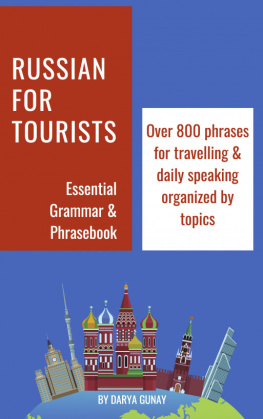
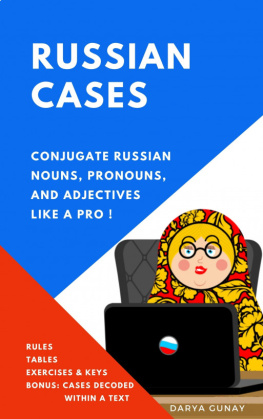
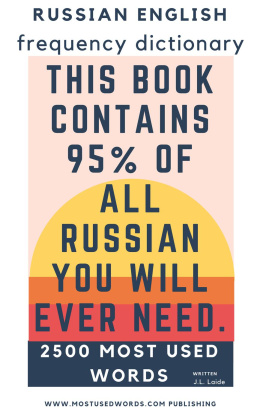

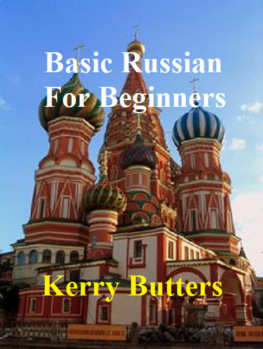

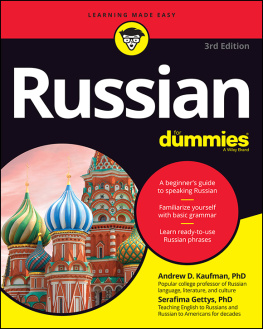
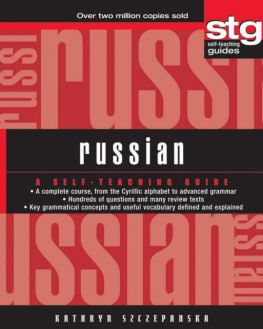
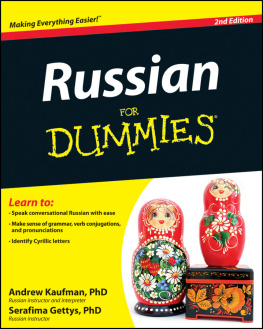
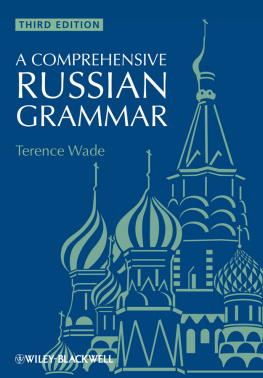
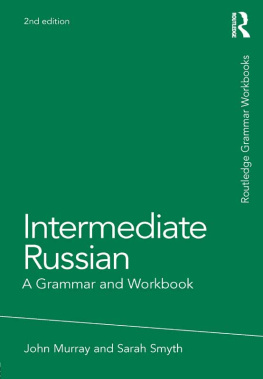
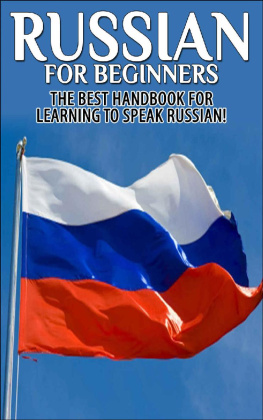
 Dear readers, my name is Darya Gunay.
Dear readers, my name is Darya Gunay.
 / YouTube/ExpressRussian /
/ YouTube/ExpressRussian /  / expressrussian /
/ expressrussian /  / expressrussiancom /
/ expressrussiancom /